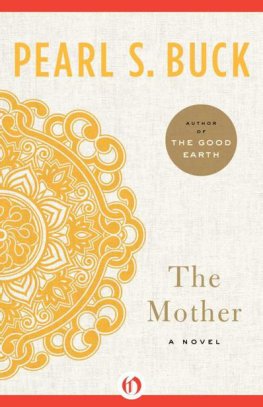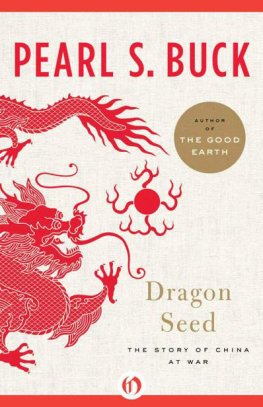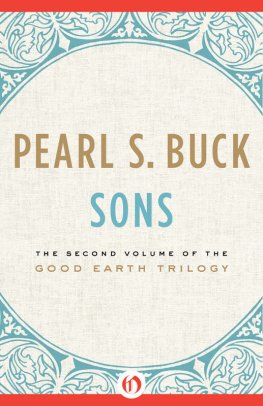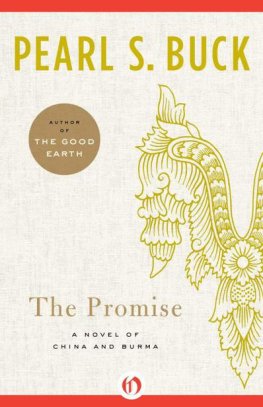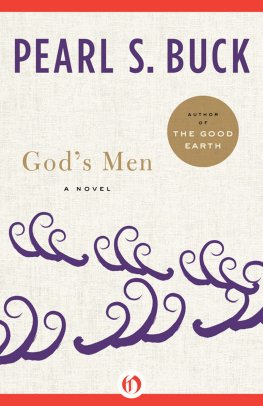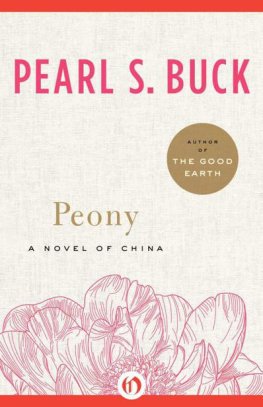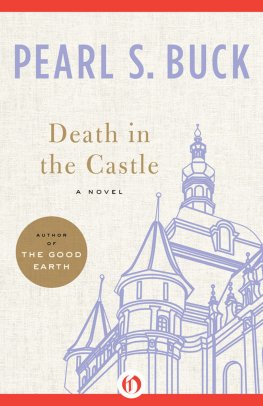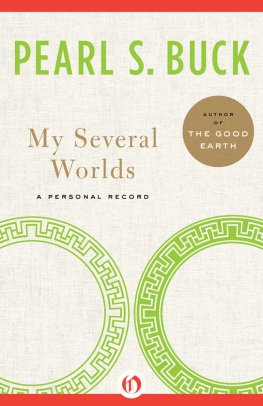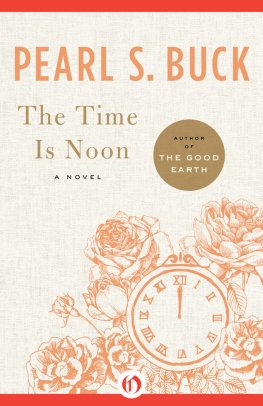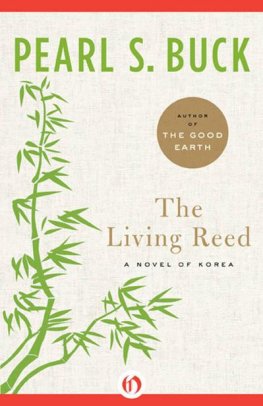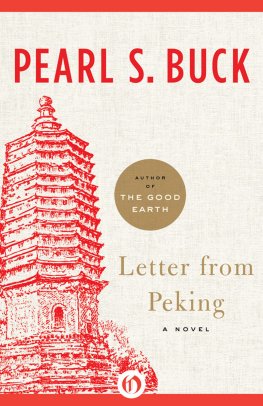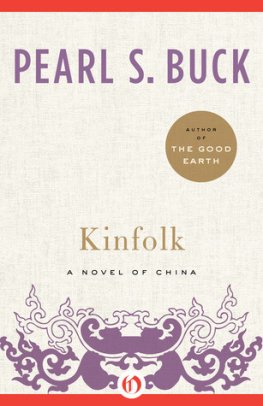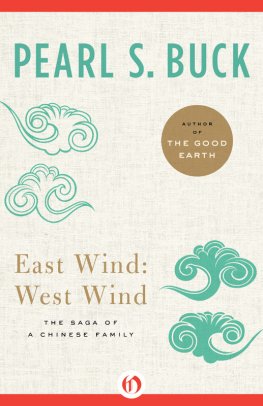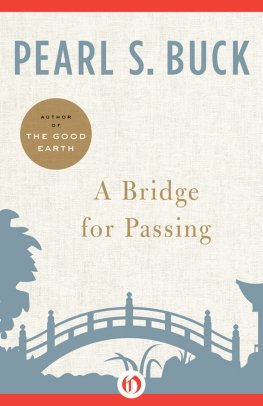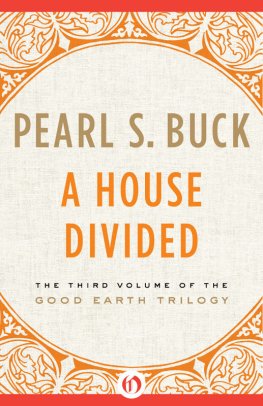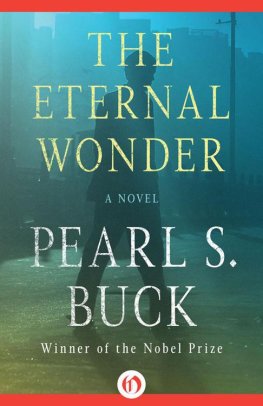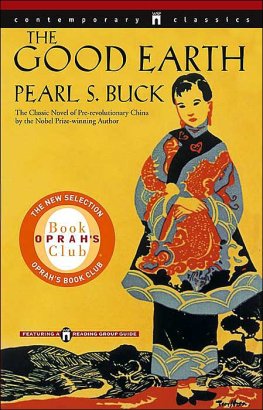IN THE KITCHEN OF the small thatched farmhouse the mother sat on a low bamboo stool behind the earthen stove and fed grass deftly into the hole where a fire burned beneath the iron cauldron. The blaze was but just caught and she moved a twig here, a handful of leaves there, and thrust in a fresh bit of the dried grass she had cut from the hillsides last autumn. In the corner of the kitchen as near as she could creep to the fire sat a very old and weazened woman, wrapped in a thick padded coat of bright red cotton stuff, whose edges showed under a patched coat of blue she wore over it. She was half blind with a sore disease of the eyes, and this had well-nigh sealed her eyelids together. But through the small slits left open she could see a great deal still, and she watched the flare of the flames as they leaped and caught under the strong and skillful hands of the mother. Now she said, her words hissing softly through her sunken, toothless gums, Be careful how you feed the fire there is only that one load is it two? and the spring is but newly come and we have long to go before the grass is long enough to cut and here I am as I am and I doubt I can ever go again and pick a bit of fuel a useless old crone now, who ought to die
These last words the old woman said many times a day and every time she said them she waited to hear the sons wife speak as she now did, Do not say it, old mother! What would we do if we had not you to watch the door while we are in the field and see that the little ones do not fall into the pond?
The old mother coughed loudly at this and gasped out of the midst of her coughing, It is true I do that the door must be watched in these evil times with thieves and robbers everywhere. If they came here, such a screeching as I would raise, daughter! Well I mind it was not so when I was young no, then if you left a hoe out in the night it was there at dawn and in summer we tied the beast to the door hasp outside and there it stood again the next day and
But the young mother although she laughed dutifully and called out, Did you, then, old mother! did not hear the old woman, who talked incessantly throughout the day. No, while the old cracked voice rambled on the young mother thought of the fuel and wondered indeed if it would last until this spring planting were finished when she could take time to go out with her knife and cut small branches from trees and pick up this bit and that. It was true that just outside the door of the kitchen at the edge of the threshing-floor, which was also door-yard, there were still two ricks of rice straw, neatly rounded and roofed with hard packed clay to shield them from the damps of rains and snow. But rice straw was too good to burn. Only city folk burned rice straw, and she or her man would carry it into the city in great bundles upon a pole and gain good silver for it. No, rice straw could not be burned except in city houses.
She fed the grass into the stove bit by bit, absorbed in the task, the firelight falling on her face, a broad, strong face, full lips, and darkly brown and red with wind and sun. Her black eyes were shining in the light, very clear eyes, set straight beneath her brows. It was a face not beautiful but passionate and good. One would say, here is a quick-tempered woman but warm wife and mother and kind to an old woman in her house.
The old woman chattered on. She was alone all day except for the little children since her son and sons wife must labor on the land, and now it seemed there were many things she had to tell this daughter-in-law whom she loved. Her old wheezing voice went on, pausing to cough now and again in the smoke which poured out of the stove. I ever did say that when a man is hungered and especially a young and hearty son like mine, an egg stirred into noodles The old voice lifted itself somewhat higher against the fretting of two children who clung to their mothers shoulders as she stooped to feed the fire.
But the mother went steadily on with her task, her face quiet and in repose. Yes, she was as quiet as though she did not hear the fretting of the children, this boy and this girl, and as though she did not hear the endless old voice. She was thinking that it was true she was a little late tonight. There was a deal to be done on the land in the spring, and she had stayed to drop the last row of beans. These warm days and these soft damp nights, filled with dew one must make the most of them, and so she had covered the last row. This very night life would begin to stir in those dry beans. This thought gave her content. Yes, that whole field would begin to stir with life tonight secretly in the damp warm earth. The man was working there still, pressing the earth tight over the rows with his bare feet. She had left him there because over the fields came the voices of the children crying her name, and she had hastened and come home. The children were standing hungrily at the kitchen door when she reached there and they were both weeping, the boy gently and steadily, his eyes tearless, and the little girl whimpering and chewing her fist. The old woman sat listening to them serenely. She had coaxed them for a time but now they were beyond her coaxing and would not be comforted and so she let them be. But the mother said nothing to them. She went swiftly to the stove, stooping to pick up a load of fuel as she went. Yet this was sign enough. The boy ceased his howling and ran after her with all the speed of his five years, and the girl came after as best she could, being but three and a little less.
Now the food in the cauldron was boiling and from under the wooden lid clouds of fragrant steam began to creep forth. The old woman drew deep breaths and champed her empty old jaws a little. Under the cauldron the flames leaped high and beat against its iron bottom and finding no vent they spread and flew out again, changing into dense smoke that poured into the small room. The mother drew back and pulled the little girl back also. But the acrid smoke had already caught the child and she blinked and rubbed her eyes with her grimy fists and began to scream. Then the mother rose in her quick firm way and she lifted the child and set her outside the kitchen door, saying, Stay there, small thing! Ever the smoke hurts your eyes and ever you will thrust your head into it just the same.
The old woman listened as she always did whenever her sons wife spoke, and she took it as a fresh theme for something to say herself. Now she began, Aye, and I always said that if I had not had to feed the fire for so many years I would not be half blind now. Smoke it was that made me be so blind as I am now and smoke
But the mother did not hear the old voice. She heard the sound of the little girl as she sat there flat upon the earth, screaming and rubbing her eyes and essaying to open them. It was true the childs eyes were always red and sore. Yet if anyone said to the mother, Has not your child something amiss with her eyes? the mother answered, It is only that she will thrust her head into the fiery smoke when I am burning the grass in the oven.
But this crying did not move her as once it had. She was too busy now, and children came thick and fast. When her first son had been born, she could not bear to hear him cry at all. Then it had seemed to her that when a child cried a mother ought to still it somehow and give it ease, and so when the child wept she stopped whatever she did and gave him her breast. Then the man grew angry because she stopped so often at her share of the work, and he roared at her, What shall you do thus and leave it all to me? Here be you, but just begun your bearing and for these next twenty years shall you be suckling one or another, and am I to bear this? You are no rich mans wife who needs do naught but bear and suckle and can hire the labor done!

